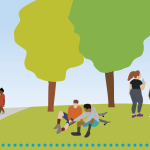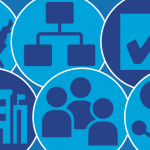Workforce & Health Care Policies to Support Children’s Mental Health
Shortages of behavioral health care providers are contributing to a deepening mental health crisis among US children and adolescents. At the same time, traditional health care models can present barriers for youth who need to access timely, effective behavioral health care. These obstacles are not equitably experienced; children and adolescents who live in rural areas (where providers are scarcer) and those who identify as Black, Indigenous, or otherwise as people of color (BIPOC) often face steeper barriers to accessing mental health care.
In this one-hour webinar, we discuss how decision makers can strengthen policies that support behavioral and mental health among youth. The session considers the challenges that master’s-level providers experience in entering and remaining in the behavioral health field, as well as policy levers that can be used to support and expand the behavioral health workforce — for example, provider credentialing processes, licensing boards, license portability processes, workforce expansion incentives, network adequacy requirements, and postgraduate training. The speakers also offer insight into health care models, such as value-based care, that can effectively integrate behavioral health in health care settings.
Our discussion is rooted in these questions:
- What evidence-based workforce and health care policy options can increase the capacity of behavioral health care systems to serve children more effectively?
- What challenges do behavioral health professionals face in obtaining and retaining licensure over the course of their career? What policy options might support these practitioners?
- What potential models can alleviate challenges in effectively integrating behavioral health in health care settings?
- What payment options might support broader access to behavioral health care for children?
This webinar is the second episode in our series Meeting the Challenge: Evidence-Based Policies to Support Children’s Mental Health & Well-Being, which explores equitable policy options to promote youth mental health.
Speakers
- Lara Robinson, behavioral scientist, Applied Research and Evaluation Team, Division of Human Development and Disability, National Center on Birth Defects and Developmental Disabilities, Centers for Disease Control and Prevention
- Aaron Karacuschansky, research associate, Milken Institute School of Public Health, The George Washington University
- Paige Wohlen Organick-Lee, research staff, Milken Institute School of Public Health, The George Washington University
- Chad Shearer, senior vice president for policy and program, United Hospital Fund
- Alexis Etow, managing director, ChangeLab Solutions
- Liz Olson, senior policy analyst, ChangeLab Solutions
- Christine Camilleri, senior planner, ChangeLab Solutions (moderator)


